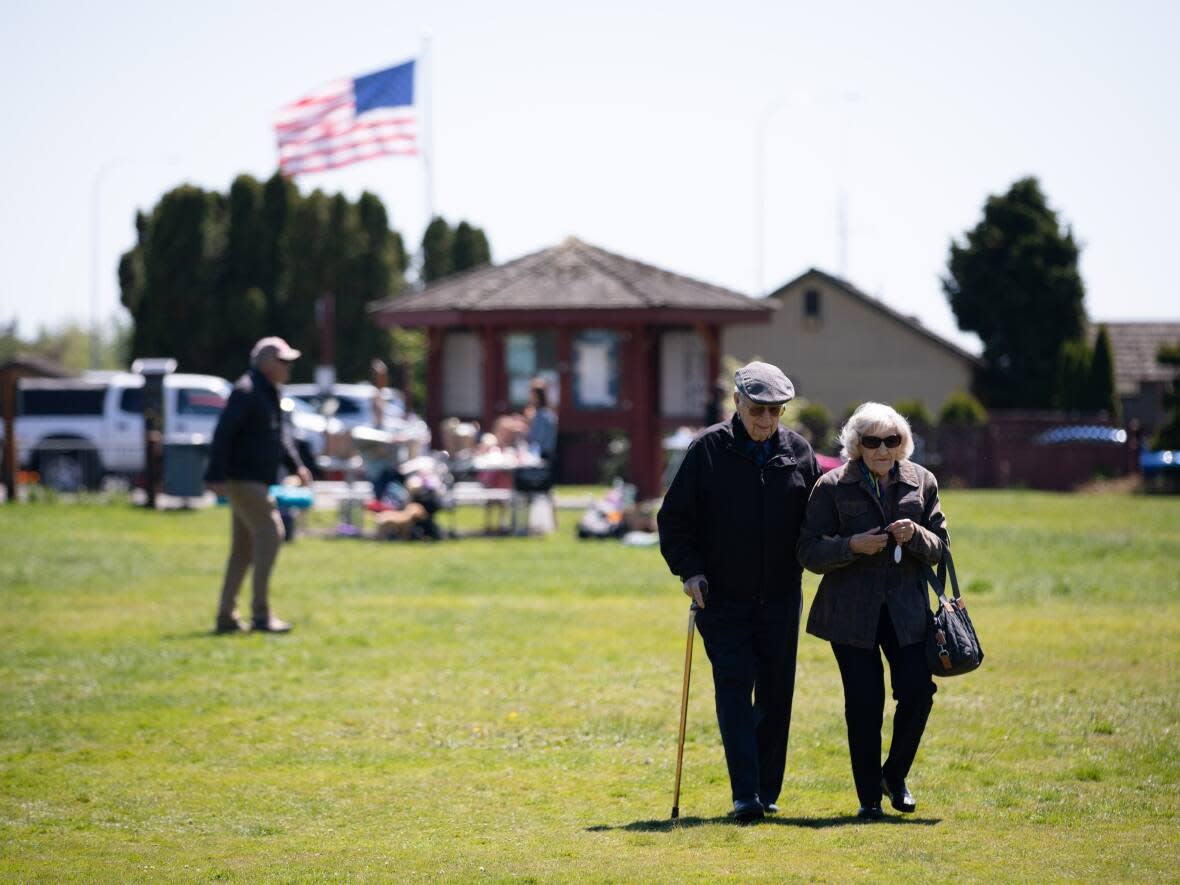Tourism leaders in B.C. and Washington hopeful but wary with border restrictions set to drop

Border cities and tourism industry leaders in British Columbia and Washington state are welcoming the end of Canada's remaining restrictions at its international borders, wearily hoping the news means communities can begin a more comprehensive economic recovery after two and a half years of losses.
From both sides of the border, the sentiment around Monday's announcement from the federal government carried a similar tone.
"There was nothing in there that we were not expecting, but there was certainly everything in there that I think consumers and travellers and frontline aviation employees were hoping to see," said Vancouver International Airport vice president Mike McNaney.
"[You're seeing] the removal of all these measures, and that will hopefully lead to a much more enjoyable travel process for folks in and out of YVR and across the country."
The federal government announced Monday that Canada's remaining COVID-19 border restrictions — mandatory vaccines, random testing, use of the ArriveCan app and quarantine for international travellers — will end on Friday, while mask and health-check requirements for people travelling by air or rail will end Saturday.
The change comes after MPs, and border-city mayors published an open letter to Prime Minister Justin Trudeau and U.S. President Joe Biden last week asking them to end the "unnecessary" rules at the border to help communities recover from the pandemic.
"Every single industry has been impacted by restricted movement at the border ... every single thing matters across that border when you're a border city," said Anita Huberman, the president of the Surrey Board of Trade, who did not sign the open letter but supported fewer restrictions at the border.
"We expect it's going to take two to three years to fully recover from what we've experienced during the pandemic. We've all been so hurt as a result of these border closures and other restrictive measures, and some decisions had to be made when they were made and implemented, but now we need to move forward."
Point Roberts, Wash., was uniquely affected by the border closures: sitting on the southernmost tip of the Tsawwassen peninsula. The community of 1,100 full-time residents is surrounded by water on three sides and B.C. on the fourth.
The local population quadruples during tourism season, and Canadians own three-quarters of properties in town. The border closure left the community on the brink of collapse.
"People ... they have almost been retrained not to come to Point Roberts, and they've found alternatives. We've got to rebuild that," said Brian Calder, the president of the Point Roberts Chamber of Commerce.
"[Dropping restrictions] will definitely make it easier ... the problem is going to be, in my opinion, restoring the confidence — trusting the border again."
To the west, staff at the ferry company carrying passengers between Victoria and the city of Port Angeles, Wash., which survived the pandemic on rescue funding from the U.S. government, said the lifting of border restrictions only relieves one of several pressure points affecting the economy.
"We feel confident about the future, but COVID's not gone," said Ryan Burls, the president of Blackball Ferry Lines. "Then here, you have fuel cost and inflation ... So, we feel optimistic, but I think we're a little wary, too."
Burls and Calder all said the removal of the ArriveCan app was a particular relief, agreeing they each met "thousands" of people who found the controversial app too cumbersome to use.
The five federal ministers making the announcement said the changes are not a sign the pandemic is over, but one informed by science and epidemiology after modelling indicated the peak of the latest wave of the disease has "largely passed.''
Health Minister Jean-Yves Duclos said public health data suggests COVID-19 cases imported into the country by travellers are having a minor effect on the epidemiology in Canada.
"There was a sense that these border measures were no longer effective or no longer justified in the circumstance that we're in right now,'' Prime Minister Justin Trudeau said Monday at a separate news conference on Parliament Hill.


